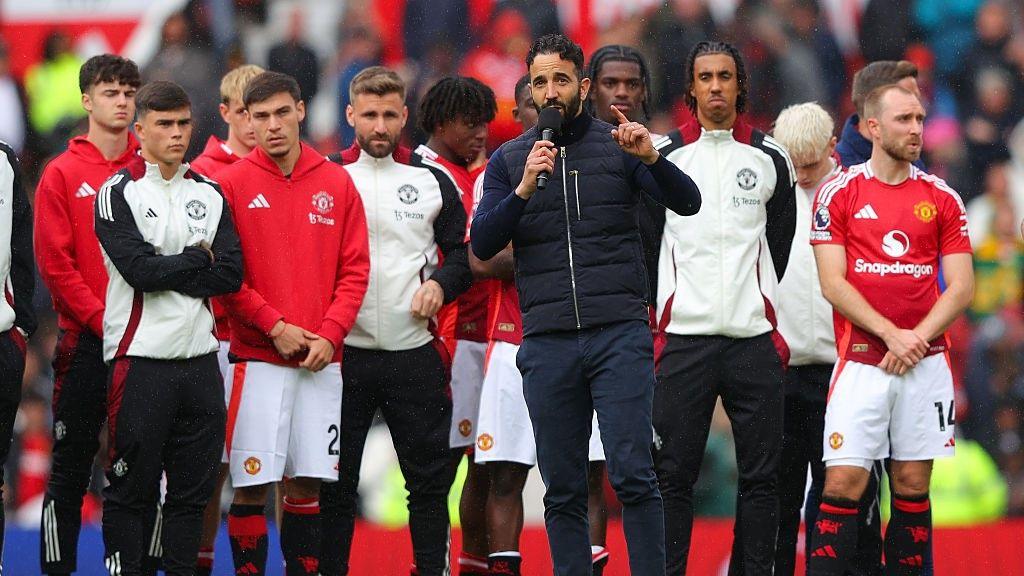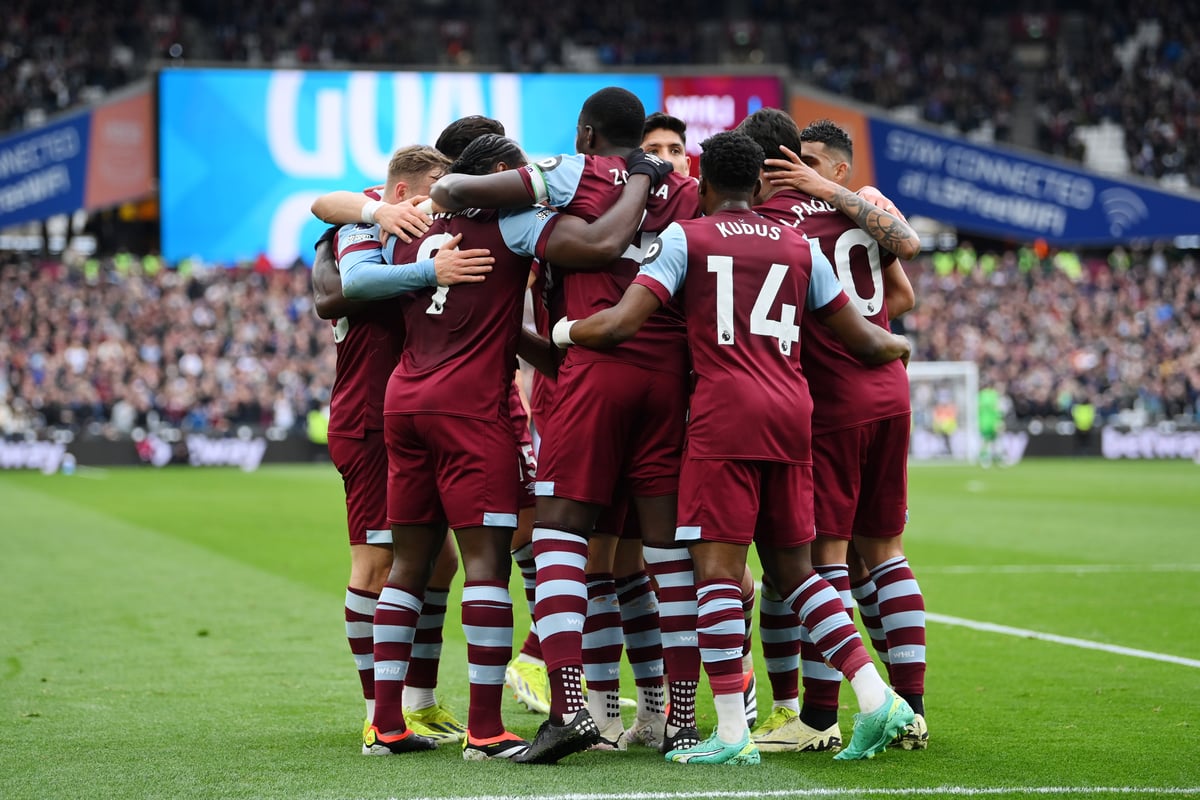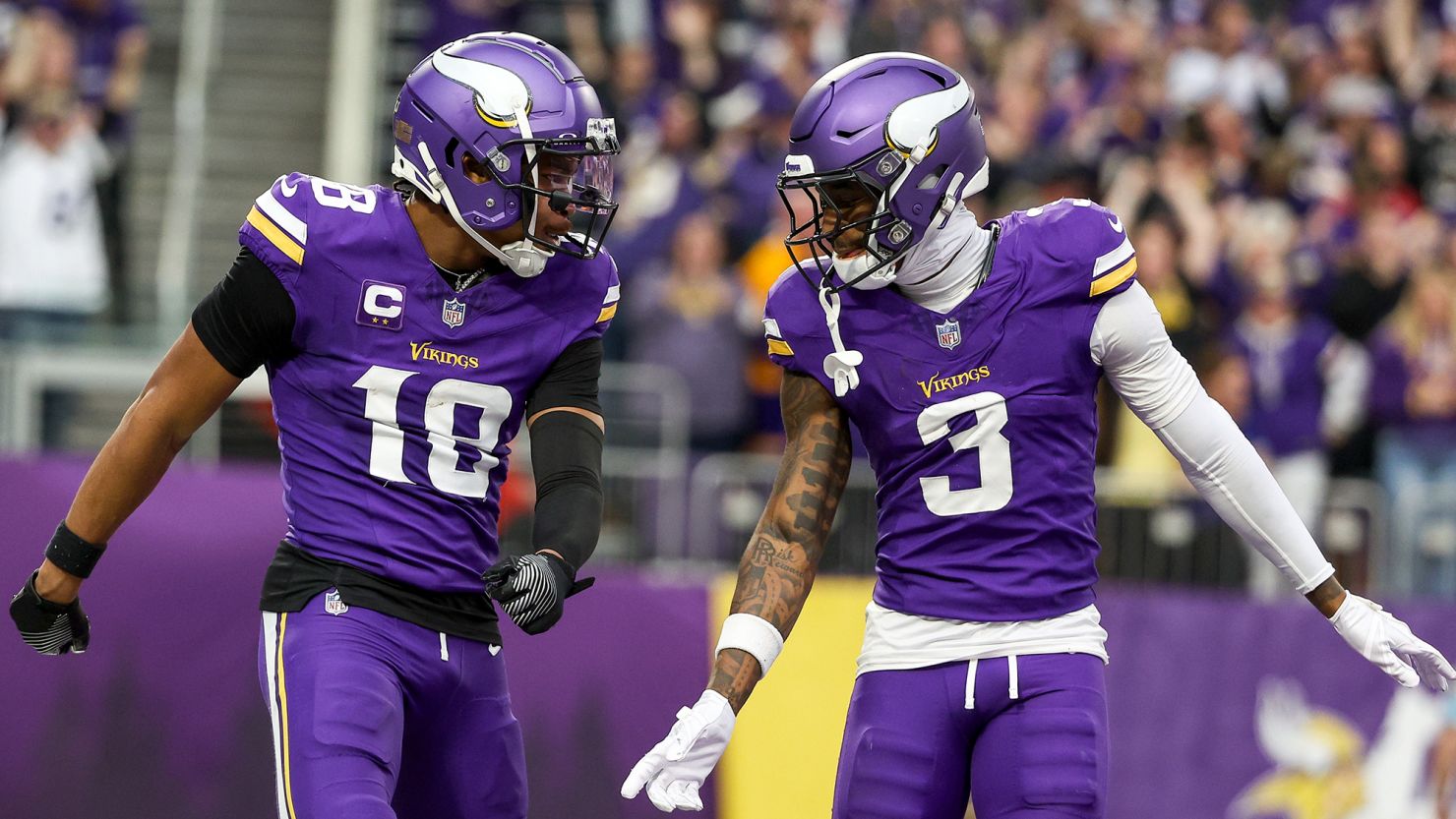Inspired by The Athletic’s reporting — these are our thoughts.
The 2024-25 season will be remembered as Manchester United’s most turbulent Premier League campaign yet — not just because of the on-pitch results, but due to a full-blown organizational recalibration under new leadership. Despite a 15th-place finish, there are emerging signs of a structural reset that could shape the next chapter of the club.
From internal fractures to future-facing strategies, here’s our take on what United’s season reveals — and what lies ahead.
A Club in Crisis Mode — and a Manager on the Brink
February 2025 was the most volatile month of the season. When Sir Jim Ratcliffe visited Carrington that week, United’s injury list ballooned, with midfielders Kobbie Mainoo, Manuel Ugarte, and Toby Collyer all sustaining setbacks during a particularly intense training session. Amad Diallo followed with an ankle ligament injury in front of Ratcliffe himself.
The physical strain highlighted deeper organizational misalignments. Amid that chaos, manager Ruben Amorim’s frustration reached a boiling point — insiders suggested he considered resigning. Publicly, he referred to uncertainty in his position and even described a sacking as potentially “liberating.”
Such comments weren’t just emotion. They pointed to a manager who felt disconnected from operational support — a key risk indicator for any high-performance sports institution. In elite consulting terms, this reflected a breakdown in “strategic alignment between technical leadership and executive vision.”
The Ratcliffe Way: Micromanagement or Hands-On Vision?
Sir Jim Ratcliffe’s approach has been one of total immersion. Staff at Carrington described him asking direct questions to everyone from masseurs to chefs and requesting follow-up emails explaining operational logic — including, reportedly, his own marathon warm-up routines.
This level of granular oversight may signal to investors and fans that Ratcliffe is engaged. But it also prompts an operational dilemma: where is the line between visionary involvement and executive micromanagement?
One thing is clear: Ratcliffe believes in Amorim. Publicly, he’s said, “Every time I go to the training ground, I speak to Ruben… and tell him where it’s going wrong, and he tells me to f*** off. I like him.” The two share a combustible but communicative working relationship, which may be critical to United’s culture rebuild.
Amorim’s Passion: Emotional Leadership in Modern Football
In January, after a crushing loss to Brighton, Amorim shattered a tactical TV by slamming a table in the dressing room. With tears in his eyes, he pleaded with his players to understand the gravity of the situation. For a manager known for tactical sophistication, this was raw leadership.
Amorim’s emotional investment has become central to United’s identity under Ratcliffe — but it’s a double-edged sword. While passion can galvanize a dressing room, it also risks volatility unless buffered by a stable support structure and clearly defined roles at the executive level.
Recruitment Reset: From Systems to Profiles
Amorim’s 3-4-2-1 formation was initially viewed with skepticism by United executives. Would a back-three system align with United’s tradition and current roster? Eventually, the results at Sporting CP and Amorim’s clarity of vision won over key figures like Omar Berrada and Jason Wilcox.
The focus now is on signing athletic, system-flexible profiles — players who can evolve with tactical demands rather than be bound to a rigid structure. This shift is essential, especially as United recalibrates financially and looks to build a more versatile, durable squad.
Christopher Vivell, now officially United’s director of recruitment, is pivotal in shaping this vision. His presence signifies a shift toward a data-informed, forward-looking model that echoes trends seen across top European clubs.
Changing of the Guard: Executives and the Power Dynamic
The season saw massive executive turnover. Sporting director Dan Ashworth’s exit — after clashes with Ratcliffe — underscored a new internal order. While Ashworth wanted to trim the football department with care, Ratcliffe demanded aggressive cuts.
Omar Berrada and Jason Wilcox, both former Manchester City executives, are now the central power axis at United. Their close working relationship and trust from Ratcliffe give them license to reshape the footballing identity. Wilcox, in particular, has brought clarity and daily tactical engagement with Amorim, creating a direct bridge from the training ground to the boardroom — a hallmark of modern footballing structures.
Stadiums, Yachts, and Long-Term Vision
Beyond Carrington, Ratcliffe is leading efforts to overhaul infrastructure. Collette Roche, a former executive focused on matchday operations, has been repositioned to spearhead the stadium redevelopment. It’s part of a broader movement to modernize all aspects of the club.
Meanwhile, in a moment of unexpected flair, Ratcliffe even invited key United personnel to watch the upcoming Euros final on his yacht — a gesture that, while seemingly lavish, speaks to his ambition to make Manchester United a prestige property once again.
Looking Ahead: From Rock Bottom to Rebirth?
Manchester United’s final game, a 2-0 win over Aston Villa, did little to erase the sting of finishing 15th. But Amorim’s post-match speech — “Today, after this disaster season, I want to tell you — the good days are coming” — suggests a belief that the worst is over.
There is cause for cautious optimism. United’s new leadership is in place. Tactical clarity is emerging. Recruitment is shifting. And above all, there’s an emotional heartbeat within the squad again — led by a manager who, for all his volatility, deeply believes in the project.
Our Take
What United’s season teaches us is simple: football institutions thrive on clarity, trust, and aligned leadership. Manchester United is attempting to rebuild all three at once — a challenge few clubs can navigate without suffering on the pitch.
As consultants, we see opportunities in this kind of reset. Clubs facing internal disruption often mistake activity for progress. But real transformation, as Ratcliffe and Amorim are attempting, depends on cultural clarity, strategic patience, and long-term vision. These traits are rarely celebrated during a 15th-place finish — but they often underwrite a title run three years later.
Let’s talk. We’ve helped brands and federations navigate this complex, high-stakes landscape.
📅 Book a consulting call with us here
Let me know if you’d like a version tailored for a newsletter or LinkedIn post.


